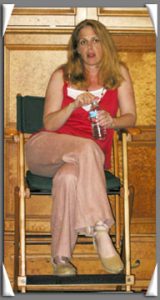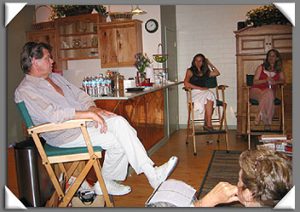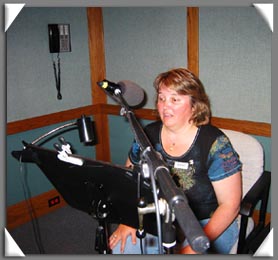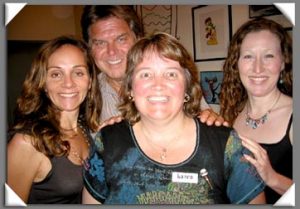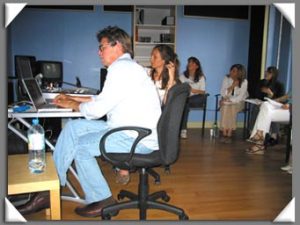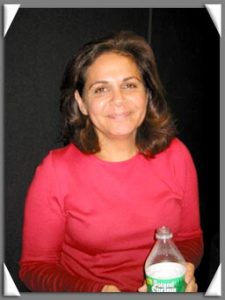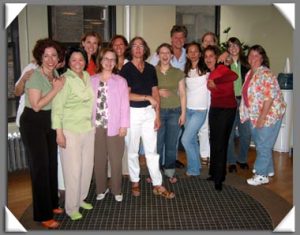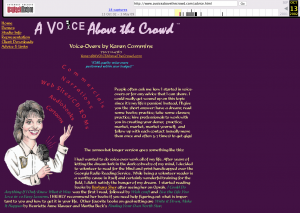Two events happened this week that are tied together. First, as I frequently do, I received a call from someone who wants to get started in voice-over. As is so often the case with these types of phone calls, the person told me that other people have told her that she should do something with her voice, so she is eager to start her career in voice-over. She wanted to know if I could recommend teachers in Atlanta. I gave her my referrals, and the call concluded.
People ask me this same question so often that I have created an advice page and a recommended book list on my web site to address the answers. I never discourage anyone from pursuing their interest in a career in voice-over. I think if something interests you that you owe it to yourself to explore it. You don’t want to go through life with regrets wondering how your life could have been different if only you had [fill in the blank].
In addition, it’s not my place to tell you the challenges and pitfalls that await you in this career. If you are serious about voice-over (or anything else, for that matter) and have a passion for it, the challenges along the journey won’t matter to you. You will view them as opportunities to grow and experience new things.
However, I also believe that you shouldn’t do things just because other people tell you that you are good at it and should do something about it. People tell me all the time that I am a fantastic marketer and that I should work for an advertising agency. While it’s true that I love marketing, I only love it when doing it for myself or when I can offer unsolicited advice to someone else! If I had to depend on my marketing skills to earn my living, I doubt I would enjoy it so much.
I also am great at math, and I have a natural aptitude for logic. I spent years working as a programmer and LAN administrator because I fell into it easily and then thought it was the right path for me. I wonder why I would think it was the right path when I always felt stressed out and miserable. I knew that I was not being true to myself. Only when I listened to my heart and realized my life-long dream of becoming a voice-over actor did I find peace and fulfillment.
Sometimes I hear from people who say, “I’ve wanted to do this all of my life!” Unfortunately, a more common theme that I hear when people call and e-mail me about going into voice-over is that they want to escape from their current circumstances. I often hear desperation in their voice, which is not an attractive quality. They see voice-over as a glamorous and easy way to make money. This business looks as easy as talking, and hey — they already know how to talk….sign me up!
In my first sentence, I promised that this post would discuss two related things. The second thing was that I read Stephanie Ciccarelli’s excellent article on her VOX Daily blog. Stephanie pointed out that the newcomer’s misguided sense of the industry is fed by our media, which portrays celebrity voice actors having an easy life of working minimum hours for maximum pay.
Stephanie’s comments centered around the voice-over sessions that TV viewers are shown. A viewer may think that a voice-over actor suddenly creates a new character voice on the spot. The best character voices are those for which the actor has been practicing and knows the character’s entire history. Trust me – after studying character voice development with Pat Fraley, a man of 4000 voices, I can tell you that truly memorable character voices don’t just come out of nowhere because you can’t replicate them, and you couldn’t sustain the listener’s interest in them.
The VOX Daily post did not address one very crucial aspect that is also overlooked by the wannabes who call and e-mail me for information in starting their new exciting career. Voice-over is a BUSINESS like any other. As a business person, I am responsible for the success of my business. In addition to being the sole commodity of the business (which is a lot of time and energy in itself!), I am in charge of all executive decisions and implementation plans regarding advertising/marketing/public relations, purchasing, accounting, information technology, publishing, art and legal matters pertaining to the business. In my copious spare time, I help out in the mail room.
I have also noticed that newcomers tend to request information and contacts without performing their own research. They are eager to start making the BIG bucks and don’t want to waste time doing mundane things like listening to demos of established talent, reading books, taking classes, practicing and developing their cold reading and interpretation skills, studying the marketplace, creating a business plan, etc.
My husband Drew is a senior software engineer for a large HR/payroll company. In the 2+ decades that he has been in the computer industry, no one has ever asked him how to get started in that profession. People realize that certain educational requirements must be met to gain an entry level position. Years of experience are necessary to move up in salary. In addition, Drew isn’t in the public eye when he’s working, so people can’t SEE him at work. I guess sitting all day at a computer screen wouldn’t look exciting anyway.
Of course, now that most people have a computer, many people seem to think they could do what he does just because they have a computer at home. Even when I was a LAN administrator, people would ask me questions rather consulting the help screens in their software. I usually had to read the help screens in order to find the answers. People would then ask me how I knew so much!
I digress a little bit only because I see people stampeding to the voice-over industry because they think it’s a source of easy money for virtually no work, just as people think that writing computer software or maintaining a computer network is easy simply because they know how to send an e-mail message.
Drew is also a professional photographer. When he has been on assignment, many people have asked him questions similar to those that I hear from the voice-over wannabes: How did he get started? How did Drew land the current job he was on? Who can that person call about getting similar jobs?
Drew has a theory about the shortcut mentality that seems to plague the performing arts. He thinks that people see someone else making money at an enjoyable activity that they think they know how to do. A photographer is just taking pictures? I could do that! You mean people actually make money for talking, and that field is called voice-over? What fun! I could do that! Drew thinks that if someone discovered a profession in which people could make money for breathing, walking or sitting on your sofa drinking beer and watching TV, people would be flocking to join it.
Stephanie asked: Can just anyone be a voice actor? In answer, I have quotes from 3 people:
A man is what he thinks about all day long. Ralph Waldo Emerson
Your vision will become clear only when you look into your heart . . . Who looks outside, dreams. Who looks inside, awakens. Carl Jung
A man to carry on a successful business must have imagination. He must see things as in a vision, a dream of the whole thing.
Charles Schwab
For me, voice-over is a dream come true, and a business that thrives because of my imagination. I think we are all endowed with special talents, gifts and skills, and we see the world in a different way. Anyone can be whatever their heart truly and deeply desires, including becoming a voice actor. I just wish that more people would make conscious choices and realize that doing things for the wrong reasons will not bring fulfillment.


